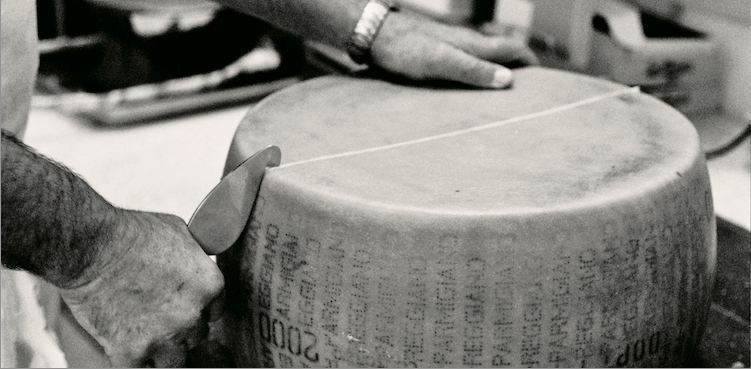
In the late 19th century, European immigration to the United States began to blossom. As the American state sprawled ever westward, old-world cheesemakers followed the fledgling dairy industry, often to Wisconsin. This skill and expertise gave rise to a true, fondue-style melting pot. European cheeses from Havarti to Muenster were now made side-by-side. Over a century later, we now have entire sports teams dedicated to our cheese-packing friends in the north. In recent times, a similar trend has developed back in the birthplace of one of our favorite cheeses, Parmigiano Reggiano. In a place where many native Italians have lost their interest in cheesemaking, Sikh immigrants from northern India have taken up the noble work in their stead.
It might seem counterintuitive, but cheesemaking is often ideal work for immigrants. Younger Italians may see the work as menial, and therefore undesirable. Sikhs often don’t harbor the same prejudices. Since the climate in Northern Italy is remarkably similar to that of Punjab, farming practices can follow native Indians to their new home. The work is steady, and it doesn’t require strong language skills. From the first wave in the 1980s, Sikhs have become the staple labor population for Italian dairies. As farmer Maurizio Novelli told the BBC, “If you go to almost any dairy farm round here, you’ll find Sikhs working in the cow sheds.” Indeed, around 90% of employees are from India.
But the new Sikh enclave is not merely present; they have become a central part of communities in northern towns like Novellara. After building one of the largest and most important Sikh temples in all of Europe, the new lifeblood of the dairy industry is there to stay. This is great news for just about everyone in the region; after all, what would the world be like without Parmigiano Reggiano?
There is a seeming irony that a famously PDO product would be mostly produced by émigrés. But this merely reflects the shifting definition of what it means to be Italian. Just like German and Scandinavians imbued life into infant American cheese making, Sikhs now are revitalizing an ancient tradition in a distant land. In the process, they enrich Italian identity. We all have stereotypes and preconceived notions about our PDO cheeses, but it is worth reconsidering who is responsible for these famous rinds. Strange as it may seem, a protected destination of origin product can be highly multicultural.



